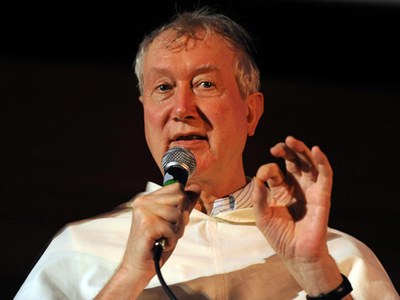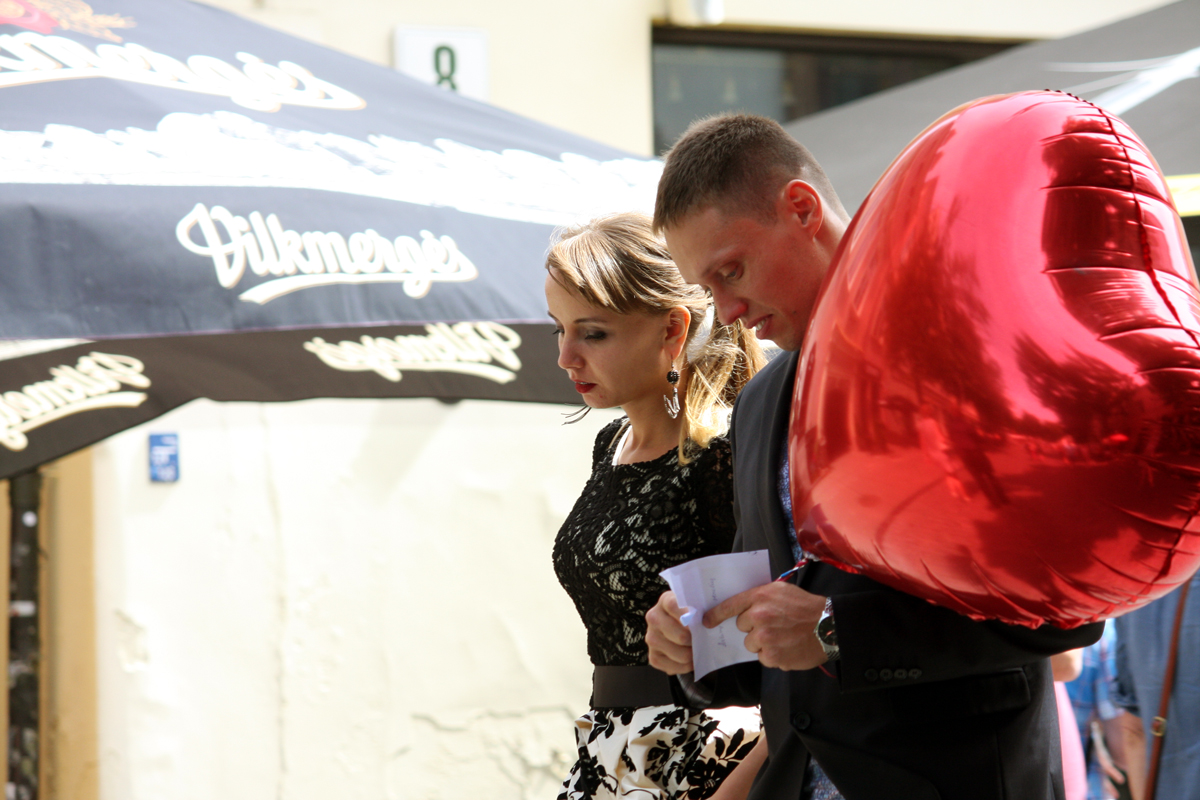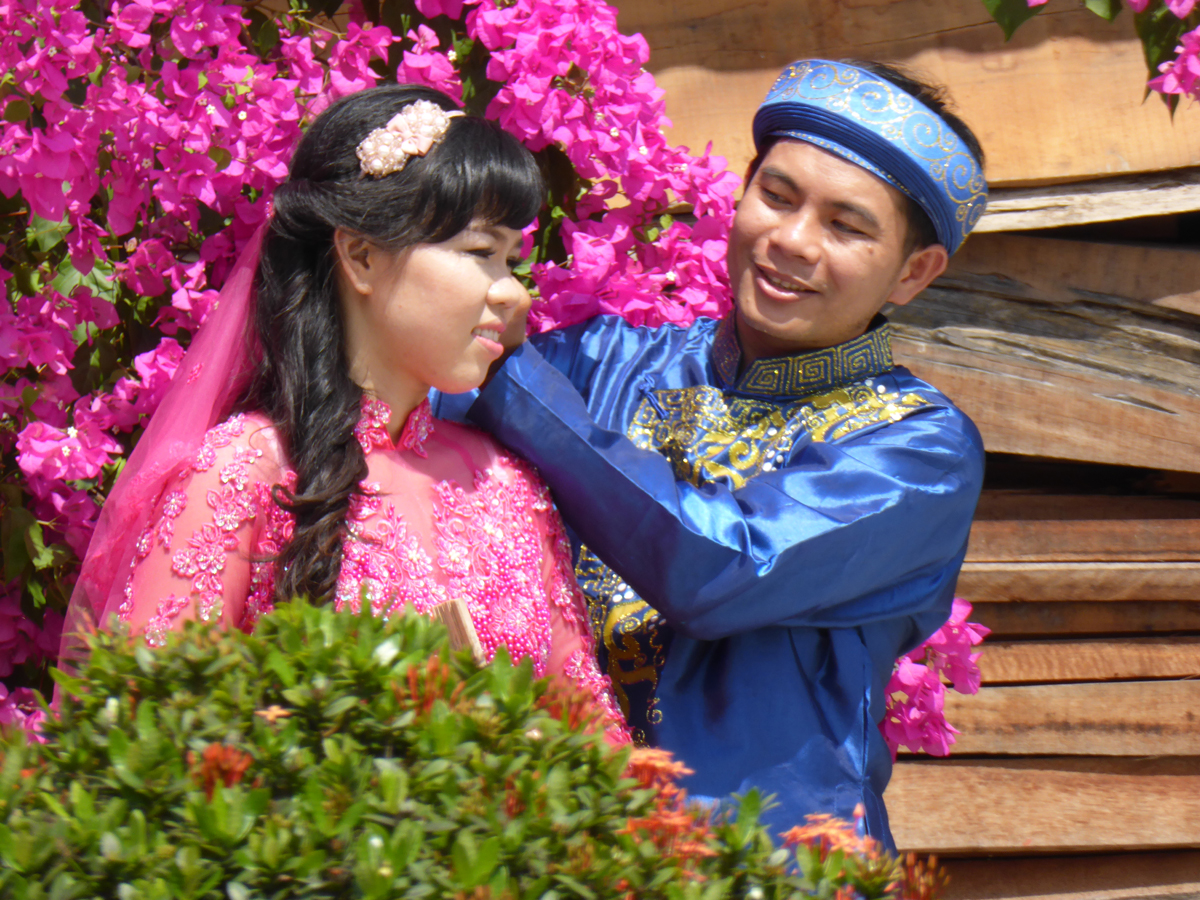"For more than a century, philosophy has centered on technology: it has studied its expressions, its effects, its moral, economic, and psychological aspects, but it has not identified its most intimate identity. Technology, for philosophy, has remained a huge question mark at the center of history, which covers with its shadow all the reality, without revealing its essence. The philosophical wind brought us here. And here the theological gusts started blowing.” Andrea Vaccaro
Sei filosofo, sociologo, piscologo, teologo, studioso della tecnologia o semplice cittadino consapevole e vuoi partecipare alla nostra iniziativa con un contributo di pensiero? Puoi farlo scrivendo a questo indirizzo.
Everyone seems to agree that we are living in an interesting time, complex and rich in changes. Many associate change with technology. Only a few consider how deeply technology is transforming the world, the objective and factual reality of people, in their roles of consumers, citizens, voters and believers. The escape velocity, the willpower of technology, its strength and its relentless evolution: in recent years many books were written on these issues, proposing new conceptual and cognitive tools to better understand technology and / or suggest a critical reflection, for a different and more aware use of technology and a deeper understanding of its effects on the future evolution of mankind.
On these issues, SoloTablet has been developing for some time an extended and open reflection, contributing to the wider ongoing discussion The approach is to engage and interview authors, specialists and scholars who are contributing their speculative, research, professional, and writing work to this discussion. After addressing the interest in the secular inspiration culture, we would like to broaden the debate, in the same way, to the Catholic inspiration side.
Interview conducted by Carlo Mazzucchelli and Edoardo Mattei with Timothy Radcliffe OP Dominican friar, former Master of the Order of Preachers
Italian Version of the interview
Good morning. Could you tell us something about your current activities, your interest in new technologies and in a reflection on the technological and information age we live in?
 I am a Dominican friar, former Master of the Order of Preachers. I am based in Oxford.
I am a Dominican friar, former Master of the Order of Preachers. I am based in Oxford.
My community, Blackfriars, is a constituant part of the University. I spend more than half of the year abroad, lecturing on theology.
I am in Myanmar at the time of writing and soon will be visiting our faculty in Jerusalem, the Ecole Biblique, before going to Iraq for two weeks.
At the age of 72, I cannot pretend to be a digital native, but I am fascinated by technology and above all how it shapes the imagination of our contemporaries, especially the young. How does it empower or disempower them?
I have spent a bit of time recently in different countries in the Middle East, and the effect of the means of social communication on the Arab Spring is well documented. So in a world in which many people feel remote from power and untrusting of politicians, the web can be a new way of having a voice in the affairs of the world.
According to the ‘pop’ philosopher of the moment, Slavoj Žižek,, we are living in a time at the end of times. This reflection by the Slovenian philosopher is on the society and the economy of the third millennium, but could also be extended to technology and its willpower (the technium of Kevin Kelly in his book ‘What Technology Wants’), that are transforming the world, the humans, the perception of reality and the future evolution of mankind. This ongoing transformation forces everyone to reflect on the phenomenon of pervasiveness and the widespread use of technological tools, but also on the effects of technology. What is your current view of the technological era we are living in and what kind of reflection should be made by philosophers, theologians and scientists, but also by individual people?
The contemporary technology can mean that anyone can belong in a global community, and this can be tremendously power in breaking down barriers. The young all over the world are often more in resonance with the young elsewhere than with elders in their own local cultures. This is a sign of great promise for the future. The disadvantage is that people tend to link with the likeminded.
Communities are formed which share perceptions of reality. Difference is uncomfortable, and so when there is dissonance, the temptation is to disengage. One is removed from the list of friends. And so difference is often embraced but only with the pretense of sameness. This is related to a profound concern that I have, which is a lack of trust in the power of reason to overcome division.
Our understanding of reason is often reductive, settling for too narrow and scientific understanding of reason, in all of its imaginative and intuitive richness.

We live immersed in an evolutionary process that has assimilated technology and undergoes its willpower and escape speed. Technology has become an integral and necessary part of everyday life. We could not live without it even if there is little awareness of the tools used and their effects. Technology is not neutral but neither bad. Much depends on the conscious and critical use me make of it, in order to know oneself and meet one’s needs. Technology should not be demonized but not even transformed into a new religion. However, this is what seems to be happening, highlighting a new escape from reality and towards irrationality. What do you think?
As I have said above, I do inded think that we are in danger of a new irrationality.
This is evident in the weakness of political debate, for example. Politicians in my country at least seem to see debate as being merely about winning, often by the use of contemptuous language rather than real engagement. The debates of the Britisbh Parliament often sound as if they are being conducted by young children.
The new technology is potentially wonderful in its effects. I use it constantly. But it need so be complemented by other forms of attention to the world, such as films, novels and poetry. These freshen our sense of the complexity of the world, and can redeem us from the simplistic world of tweets and slogans. Think of President Trump!
So I use modern technology much as a travel, but I also follow the advice of one of my brethren, too renew my mind by reading Shakespeare as I travel, on my Kindle!
According to many, the pervasiveness of technological tools and the increasing time dedicated to them, are putting the religious practice as well as spirituality in crisis. Technology seems to do miracles like the ones told in the Gospel (heals crippled, blind, paralyzed hands ...) and to accomplish the messianic age of happiness and well-being. Technology is seen as a Sacrament, a tool God offers to man, while being at the same time a totally human progress (Techgnosis and New Age). If technology can produce the same divine acts, why continuing to believe?
Technology is a fruit of our human intelligence and creativity. And it is possessing these gifts that we are made in the image of God.
Our God is not jealous of his children, and so for me as a Christian, I give thanks to God for the gifts of modeern medecine and technology. To think that these gifts are in competition with beliefin God would only be so if one had a very reductive idea of God, as a sort of computer brain in the sky.
The deepest questions, about what it means ot love and where we find meaning in our lives cannot derive from technology, even if tecnhology can be a useful servant in our exploration.
When I want to understand what it means to love I read poetry and great literature, all in the light of the Scriptures of my religion, and the other way around.

In the current evolution, the human beings seem to delegate to technology significant portions of their lives or use it as an effective antidepressant drug. Looking for well-being, happiness and power, humans seem to be engaged in an endless change that could result in the disappearance of their human traits. Thanks to our technological devices, we all feel a little superhuman, but the perception that technology is taking over generates anxiety, panic and unhappiness. Perhaps this is why one prefers to live the present and gives up envisaging the future. What is your opinion about it? Is technology changing the concept of "Law of Nature"? Are we facing a “technology re-enchantment”, like the philosopher Michel Maffesoli thought?
There is no moment of pure present.
As St Augustine said in the fourth century, the there is the present of the past, the present of the present and the present of the future. The present can only lived in happily if it carried by the memory of the past and the anticipation of the future.
Modern technology can immensely enrich our sense of the vastness of the past and the unimagined possibilities of the future. We look back billlions of years to the Big bang. This is wonderful. But it cannot of itself provide a meaning for the stretch of history within which we live.
Astrophysics, and our new understanding of the immensity of the univeristy enlarge the story in which we live but do not give us any understanding of its ultimate meaning for that is beyond the scope of these disciplines. For this, we need the humanities, and indeed religion.
Technology has become the new religion of the 21st century and the Silicon Lords (Google, Facebook, Amazon, Microsoft and Apple) are its prophets. Noah Harari, author of Homo Deus, also claims that "..technology defines the purpose and limits of our religious visions, as a waiter defines the choice options for our appetites." New technologies are killing the old Gods by creating new ones. Historical religions, from Christianity to Hinduism, for centuries have provided answers to important questions of the human beings. Today, they have difficulty in answering the many questions that technology poses: artificial intelligence and work, politics and growing inequalities, biotechnologies, immortality research, etc. Has religion exhausted its answers or still has an anthropology for the modern technological, disenchanted man, more educated compared to the past?
Human beings are certainly more educated in some respects than in the past, with a far greater understanding of natural life and of how creation came to be. But we are no necessarily wiser when it comes to the deeper questions of the purpose and meaning of life.
Technology has not increased our understanding of what it means to love each other, even though it has in some respects increased our abiity to express that love. I can now contact someone whom I love in Australia in ways that were previously impossible.
My Christian faith gives me an understanding of what it means to be a human being, made for an infinity of love, which no science can give. We have a biological nature which science illuminates, but we also have a thirst for infinity which it cannot satisfy.
The temptation of our technological world is a sort of reductionism. Science which is of itself wonderful can become scientism if it falls into the trap of thinking that it can answer all questions. In a similar way, economics can fall into a sort of market fundamentalism. Religious findamentalism is afflciting large parts of the globe,, but this fundamentalism is rooted not in religion but in modernity’s attraction towards reductive answers to complex question, which can only be pursued with wisdom.
.

If technology promises to accomplish the Kingdom of God on Earth, and seems to win new proselytes and loyalists every day, does it mean that the promises of the Kingdom of God on Earth are fulfilling? Or, on the contrary, is technology only a Prometeic gift? What is the relationship between technology and Providence?
There is not much evidence that technology is today succeeding in building the Kingdom of God on earth.
Instead we see the danger of ecological catastrophe, increasing inequalities between the very rich and the poorest. The Twentieth Century was the most violent in human history, with hundreds of millions of people killed in war and genocide. Of course technology can help to solve many problems. It is helping us move towards renewable sources of energy and to fight various illnesses. It is a blessing, but the building of a more just society requires the transformation of the human heart, which technology cannot achieve.
Le machine al lavoro, gli umani senza lavoro felici e contenti!
Thanks to technology, the human beings see their earthly life simplified, exempt from fatigue, automated, faster, relieved and also enhanced (health, economy, relationships, etc.) A perceived happier terrestrial life seems, however, to move away from intimacy and the religious and spiritual depth, and heading towards superficiality and exteriority. How can technology - and/or the interaction with it - facilitate a more intimate, deeper, spiritual and religious life? Can technology be the vehicle of new forms of faith and an instrument of spirituality, to transcend the existing and prepare for the world to come?
At the heart of the spiritual life is listening to the Word of God. New media can help this.
When I try to understand a passage of scripture, then I do not just talk with my neighbours in Oxford. I can hear what my sisters in Iraq are thinking as they face war and suffering. I can listen to a Baptist in the United States, or maybe a Jewish scholar in Israel.
If the Kingdom of God will gather all people into unity, as Christians believe, then technology can help us to have an ear which is open to the dreams and challenges of people everywhere.
In this sense, it can be a spiritually rich tool. But we will still need the old fashioned work of scholars who master ancient languages, to make sure that we do not succomb to the temptation of the new media, which is superficiality. I need scholars who can illuminate the concealed meaning of texts. I will still need to sit in silence, with an ear open to God, as I read the scriptures, letting myself be surprised. And so the new technology can complement but not replace the old ways of reading scripture.

Billions of people today are equipped with smartphones used as technological prostheses, magnetic displays capable of narrowing the human eye view by making it fake, applications that can deliver virtual and parallel digital experiences. In this reality, what is missing is a reflection on how technology is changing people's lives (High Tech High Touch by Naisbitt) but above all on what the effects are and what the consequences may be. The first effect is that they are changing the very concepts by which we analyze and understand reality. Technology is no longer neutral, it is rewriting the whole world and the very brain of people. It is doing it through the power of technological makers and the tacit complicity of users / consumers. How are the concepts that we use to interact and understand technological reality changing? Do you also believe that technology is no longer neutral?
These are fascinating questions on which I have not reflected enough. Maybe I am too old and old fashioned to have anything useful to say. In my small experience, using technology to write, I would say that a tremendous new advantage is that when I write, I do not have to do so linearly. In the old days with a typewriter, you began at the beginning and typed until you got to the end. Now I can begin anywhere and let a text grow organically, in any direction. Meaning unfolds on the screen from a core rather than always from a starting point. Now I cannot imagine what it would be like to think without a screen.
Of course the big issue that we face is truth. How can we keep alive the instinct for truth, which is the very core of our human dignity, when the new media are filled with so many assertions which have no basis? How can human beings flourishing in a world which is post-truth? This is a challenge which governments are demanding that the great technological giants, such as Google and Facebook face, but they are not sure how to respond!
According to the French philosopher Alain Badiou what counts is not much what “is”(who we are!) but what “comes”. With a look at technology and its evolution, in your opinion, what are the indications and the reflections that the Church should engage to develop a Magisterium capable of giving meaningful answers regarding the future as well?
We must not expect the Magiesterium to have all the answers. People are creative and try out new ways of living and speaking.
The Magisterium must exercise a lot of patience as the Church waits to see what appears, and what fruit is given. The temptation of the Church in the past has been sometimes to be too controlling and afraid.
We need the Magisterium of course, to keep the People of God walking towards the Lord of life, but it must not be too quick to judge. Much of Christian history has been the reversal of premature judgments, for example on democracy!
Wittgesntein famously said tdhat one philosopher shoudl hgreet another with the words: ‘Take your time!’
According to some, technofobics, techno-pessimists and techno-luddites, the future of technology will be dystopic, dominated by machines, by the singularity of Kurzweil (the escape route of technology) and by a Matrix which will ban even those red pills that helped Neo to become aware of the artificial reality he was imprisoned in. For others, technofiles, techno-enthusiasts and techno-maniacs, the future will be full of opportunities and new utopias / etymologies. Which of these categories you think you belong to, and what is your vision of the technological future waiting for us? And the position to take, shouldn’t it be simply techno-critical or techno-cynical? And what if the main thing was just a wider awareness of the technology used?
By nature I am an optimist. Whatever dystopias we may pass through, in the long run, the Holy Spirit of truth working in our hearts and minds will eventually free us from slavery to any technological ngithmare.

Sherry Turkle is a researcher among the most dedicated to the technology phenomenon. In her books Connected, but alone and Reclaiming Conversation, Turkle has analyzed the social networks’ phenomenon, concluding that by sacrificing human conversation to digital technologies, dialogue is losing its strength and losing its ability to endure loneliness and anxiety, but also to focus on, reflect and act for one’s own physical and cognitive well being. How do you consider the social networks and the compulsive practices deriving from them? If faith is primarily a relationship with a person (God), how does it change in the interaction with God and men in this reality more and more and mediated by technological devices?
I have never read Sherry Turkle but your question makes me want to do so, since her insights as you present them seem to me to be spot on.
Instant communication, the restless sending of short messages, may sap our ability to really attend to each other. All learning profound is slow and organic, and includes both excitment and boredom, pausing to think long an dhard before responding.
We have to dwell with ideas, annd let them subvert our presuppositions. This is made more difficult in a culture of the instanteneous. And so it is with our relationship with God. Our wise ancestors knew that to attend to God meant hours and hours of silence, waiting for a hint, letting God’s Word penetrate slowly to the core of our being. Are we losing that patient attention?
Is there anything else you would like to add for the readers of SoloTablet, like for example, a reading suggestion? Are there topics you would propose for deeper analysis in future activities? Would you like to share and spread the initiative where you were also involved?
As I said above, read great literature, and if possible, in languages other than your own.
What do you think about the SoloTablet project and its initiatives aiming at a shared discussion on Technology? We would very much appreciate your comments to improve it or enrich it with new initiatives.
I think that it is a wonderful initiative and I look forward to seeing how it develops.

* All images are from Carlo Mazzucchelli world travels (Tanzania, India, Lituania, Estonia)

